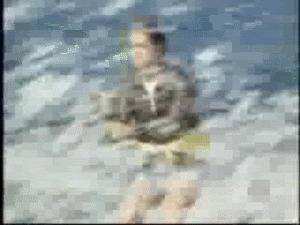First, let's talk about what this phrase means. According to Wikipedia:
Jumping the shark is an idiom created by Jon Hein that was used to describe the moment in the evolution of television show when it begins a decline in quality that is beyond recovery, which is usually a particular scene, episode, or aspect of a show in which the writers use some type of "gimmick" in a desperate attempt to keep viewers' interest.
In its initial usage, it referred to the point in a television program's history when the program had outlived its freshness and viewers had begun to feel that the show's writers were out of new ideas, often after great effort was made to revive interest in the show by the writers, producers, or network.[1][2][3]
The usage of "jump the shark" has subsequently broadened beyond television, indicating the moment when a brand, design, or creative effort's evolution loses the essential qualities that initially defined its success and declines, ultimately, into irrelevance.
The origins of this phrase comes from the hit television show Happy Days as it entered its fifth season. So what happened?
Fonzie jumped a shark. Literally. This moment was viewed as the beginning of a decline for the show. And we still use this term today to define moments of "Are you serious?" in television and literature.I've experienced those moments in literature. Recently, for me, it was The Mortal Instruments. I was okay until the big reveal at the end concerning Clary and Jace. And I couldn't move past it. I know a lot of people love those books, so keep in mind we have our own opinions as I express mine here. To me, it felt like a contrived plot point. A gimmick. And as a reader, there's nothing I can't stand more. I see small ones here and there, but when they go big--when they jump the shark--I can't move forward. If you're looking for another example of jumping the shark in literature, think of a certain hybrid baby with skin that sparkles in the sun.
I've experienced it with television recently as well. I started watching Roswell since injuring my hand, and I loved the first season. It was a great mix of teen angst, suspense, action, and sci-fi, all with a really compelling love story. Season two felt a bit off balance and was harder to watch. If I'm honest, the second set of the Four was probably the first time the show jumped the shark. But the opening scenario with Liz and Max for season three jumped about four other sharks for me. It felt like a ploy to keep the "will they/won't they" suspense they had in season one--something else to keep our young lovers apart. Because we all know getting a couple together on a show spells doom (that rant is for another post). So I stopped watching.
My point in all of this is that we need to treat our readers like intelligent people. Don't dumb things down for them, and don't throw obvious sharks their way. Sometimes, as writers, it is very easy to get carried away with the mustache-twirling plotting and imagining what readers' reactions will be when they come across our nefarious plans for their beloved characters. But we need to stop, take a breath, and make sure we are making decisions based on the story and the characters, not by what will get a reaction out of readers. Because if you write that way, you might not like the reactions readers have.


No comments:
Post a Comment